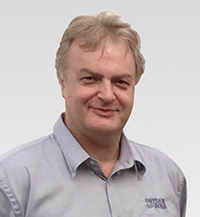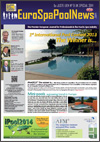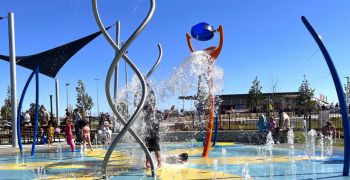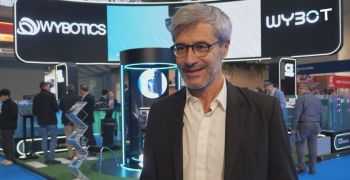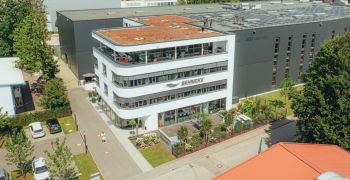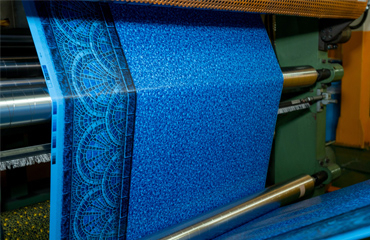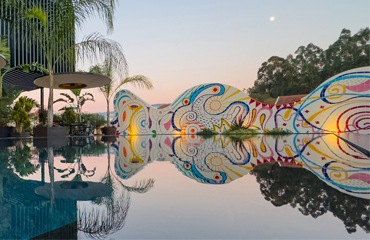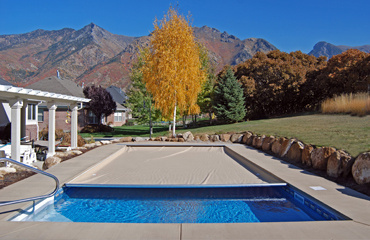|
Dr Howard Dryden
|
Dryden Aqua founder Dr Howard Dryden explains what drove him to look for alternatives to traditional sand in pool filtration.
The heart of any swimming-pool water-treatment system is the sand in the sand filter. However, like any heart it does not work well unless it has a good support structure and circulatory system. The performance of the water-treatment system in a pool depends on the quality of the sand – yet there is huge variation in sand quality from different suppliers and quarries. The best sand in the UK is considered to be the Leighton Buzzard deposit.
At Dryden Aqua we have been instrumental in developing a new filtration media to replace sand. We are marine biologists working on chlorinated systems for dolphins, killer whales and other aquatic mammals in captivity. Unfortunately, many of these animals succumb to lung damage, pneumonia and neurological damage resulting from chlorine disinfection by-products. For example, the average life-span of a dolphin in a system with a combined chlorine concentration above 0.2 mg/l is about 10 years. In their natural habitat, dolphins live for 50 years.
For me, this situation was completely unacceptable, and we set about understanding how disinfection by-products are formed and then proceeded to solve the problems. Part of the solution was AFM®, our activated filter media to replace sand in sand filters. However, good quality filters also need to be used, there must be efficient coagulation and flocculation, and the staff need to be well trained. All of the parts of the water treatment system need to work together, and to achieve this task we developed DAISY (Dryden Aqua Integrated System) that is now applied to the pool industry.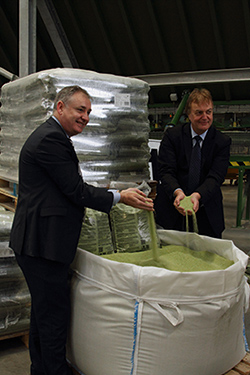 Most combined chlorine is formed by biomechanical reactions on the surface of sand. Once this issue was understood it then became clear how to resolve the problems, and this was achieved by developing AFM®. However, the bacteria growing on the sand in pool sand filters are also treating the water, and without the bacteria there will be water quality and bacteriological issues in the pools. AFM® was therefore designed as a molecular sieve to adsorb organics and precursors that form chlorine disinfection by-products.
Most combined chlorine is formed by biomechanical reactions on the surface of sand. Once this issue was understood it then became clear how to resolve the problems, and this was achieved by developing AFM®. However, the bacteria growing on the sand in pool sand filters are also treating the water, and without the bacteria there will be water quality and bacteriological issues in the pools. AFM® was therefore designed as a molecular sieve to adsorb organics and precursors that form chlorine disinfection by-products.
Just like there are many different types of sand, there are now many different types of glass filter media and all have very different properties. Some are safe but others are considered really dangerous, and should never be allowed near a swimming pool. The UK pool industry is in the unfortunate position that there are no formal standards: standards drive quality and help ensure that only the best products are used, and this is the situation in countries such as Switzerland, Germany, Austria and the Netherlands. These areas are where Dryden Aqua is most active, to the extent that Dryden Aqua now supplies over 80% of all pool installations in Switzerland and over 100,000 installations in Europe.
In order to help pool operators in the UK make considered decisions, AFM® and DGS (Dryden Glass Sand) has now been tested under the new European Verification standards, and benchmarked against sand and all available glass media. The results confirm that AFM® and DGS are better than the best sand, but that all other glass filtration media did not perform as well as Leighton Buzzard sand. The full results will be published in March 2014.
To meet the demand for AFM®, Dryden Aqua has now constructed the most sophisticated glass filter media manufacturing facility in the world and is processing 40,000 tonnes per year. This is sufficient filter media to provide the entire pool industry in Europe. Also in the new facility are three laboratories, two of which are for checking AFM®, with the third being for water and biological analysis. Facilities now include DNA testing for cryptosporidium and giardia parasites in pools as well as mobile testing systems for nitrogen trichloride in the atmosphere of pool buildings.
Dryden Aqua is developing a research and development manufacturing facility for the European pool and water industry. Our focus is on quality and health and safety for the public as well as the pool staff. This usually means systems are a bit more expensive, but preliminary independent analysis by Oakdene Hollins and the Carbon Trust confirm a return in capital can usually be achieved in less than 18 months.
There is no excuse for aquatic mammals such as dolphins to suffer from lung and neurological harm. This is not theory or something that requires years of deliberation: it is fact. Our mission is to bring to the UK pool industry the same benefits that we have brought to the environment for aquatic mammals.
â–º Article published in the UK Special edition
of eurospapoolnews - February 2014


